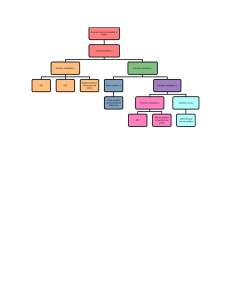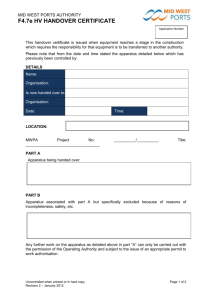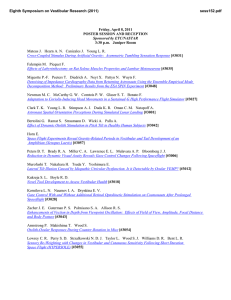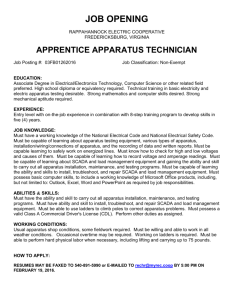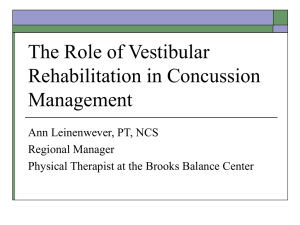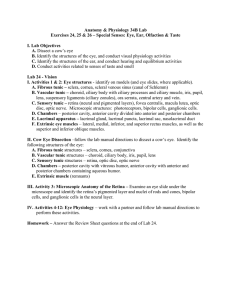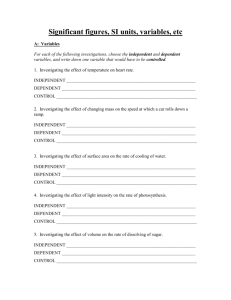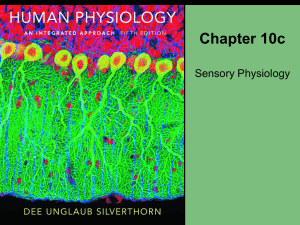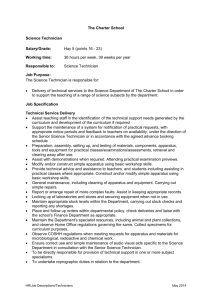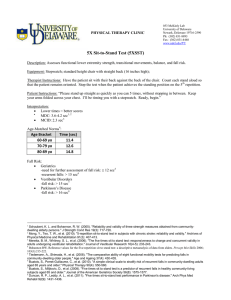Chapter 12
advertisement
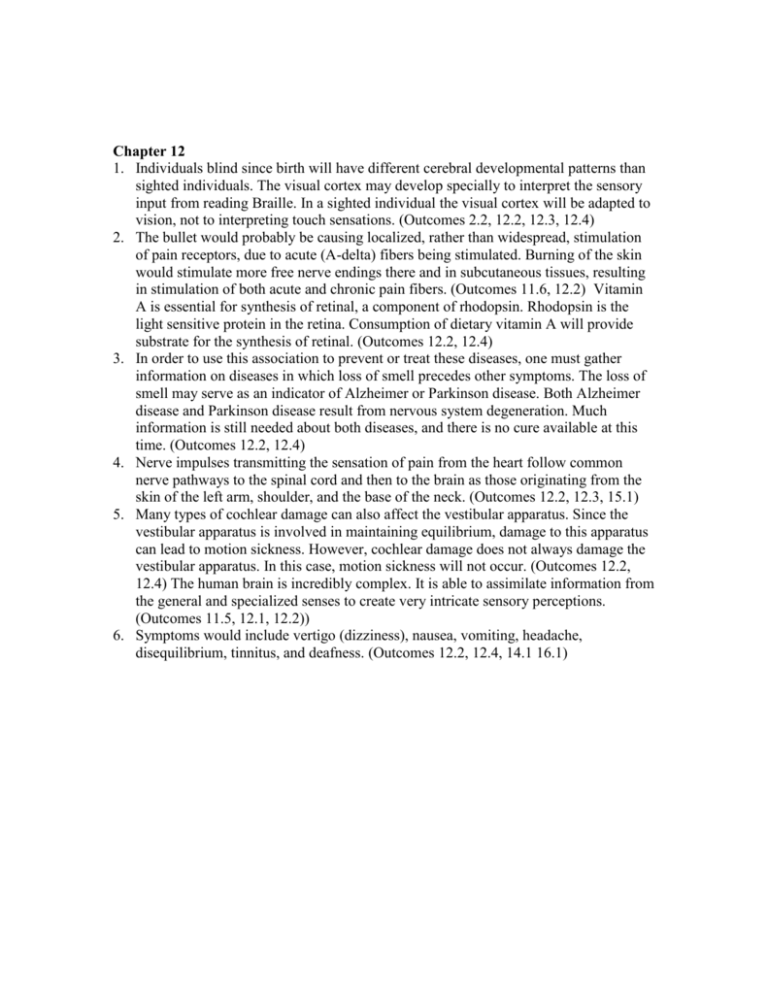
Chapter 12 1. Individuals blind since birth will have different cerebral developmental patterns than sighted individuals. The visual cortex may develop specially to interpret the sensory input from reading Braille. In a sighted individual the visual cortex will be adapted to vision, not to interpreting touch sensations. (Outcomes 2.2, 12.2, 12.3, 12.4) 2. The bullet would probably be causing localized, rather than widespread, stimulation of pain receptors, due to acute (A-delta) fibers being stimulated. Burning of the skin would stimulate more free nerve endings there and in subcutaneous tissues, resulting in stimulation of both acute and chronic pain fibers. (Outcomes 11.6, 12.2) Vitamin A is essential for synthesis of retinal, a component of rhodopsin. Rhodopsin is the light sensitive protein in the retina. Consumption of dietary vitamin A will provide substrate for the synthesis of retinal. (Outcomes 12.2, 12.4) 3. In order to use this association to prevent or treat these diseases, one must gather information on diseases in which loss of smell precedes other symptoms. The loss of smell may serve as an indicator of Alzheimer or Parkinson disease. Both Alzheimer disease and Parkinson disease result from nervous system degeneration. Much information is still needed about both diseases, and there is no cure available at this time. (Outcomes 12.2, 12.4) 4. Nerve impulses transmitting the sensation of pain from the heart follow common nerve pathways to the spinal cord and then to the brain as those originating from the skin of the left arm, shoulder, and the base of the neck. (Outcomes 12.2, 12.3, 15.1) 5. Many types of cochlear damage can also affect the vestibular apparatus. Since the vestibular apparatus is involved in maintaining equilibrium, damage to this apparatus can lead to motion sickness. However, cochlear damage does not always damage the vestibular apparatus. In this case, motion sickness will not occur. (Outcomes 12.2, 12.4) The human brain is incredibly complex. It is able to assimilate information from the general and specialized senses to create very intricate sensory perceptions. (Outcomes 11.5, 12.1, 12.2)) 6. Symptoms would include vertigo (dizziness), nausea, vomiting, headache, disequilibrium, tinnitus, and deafness. (Outcomes 12.2, 12.4, 14.1 16.1)
